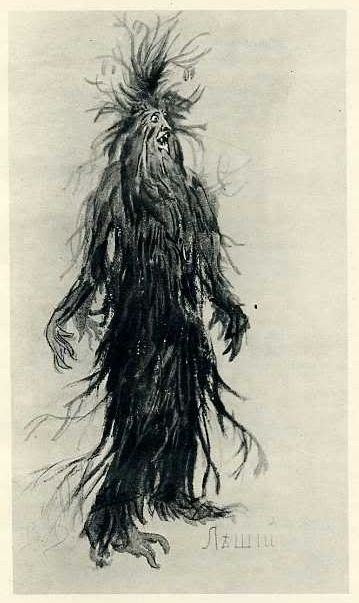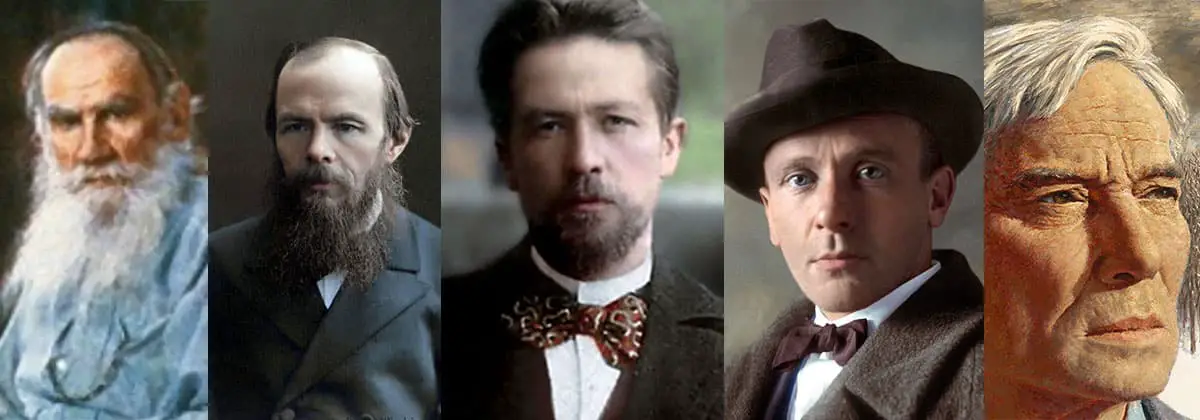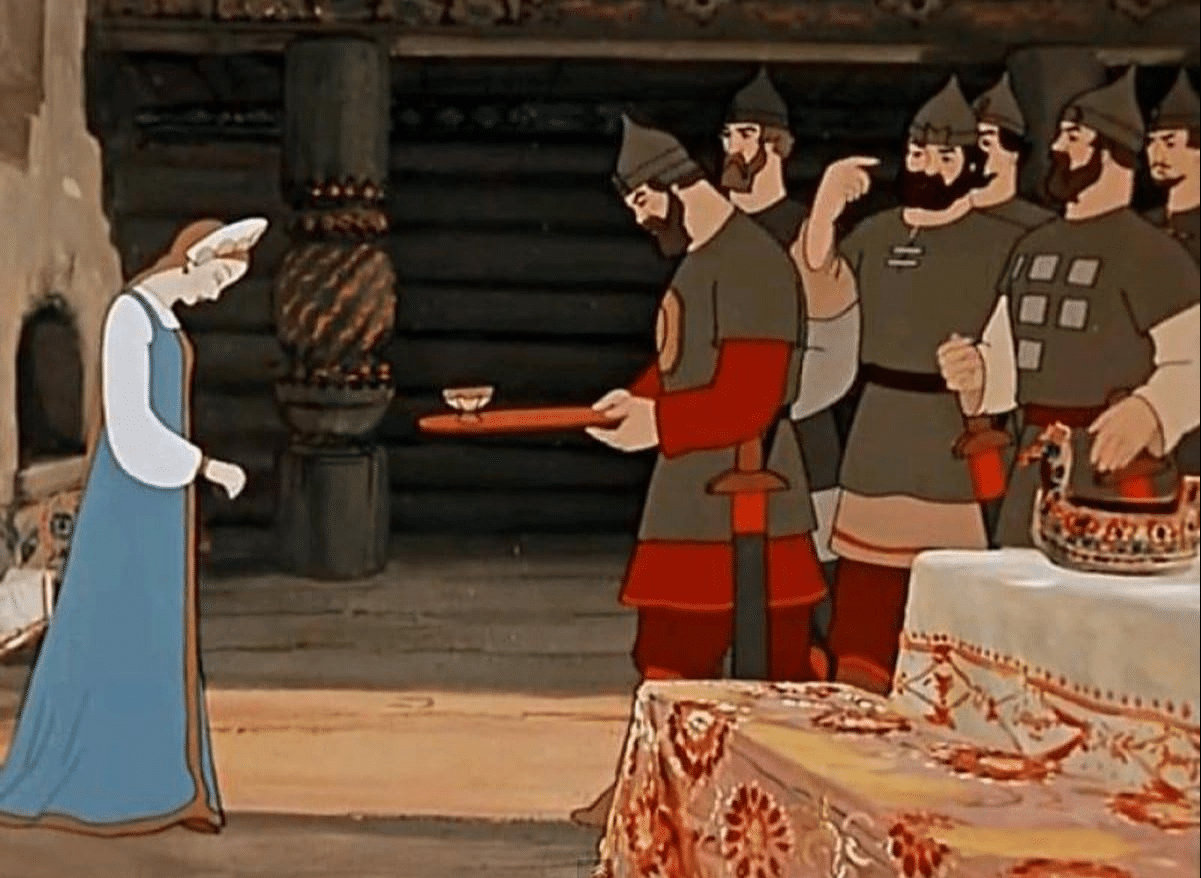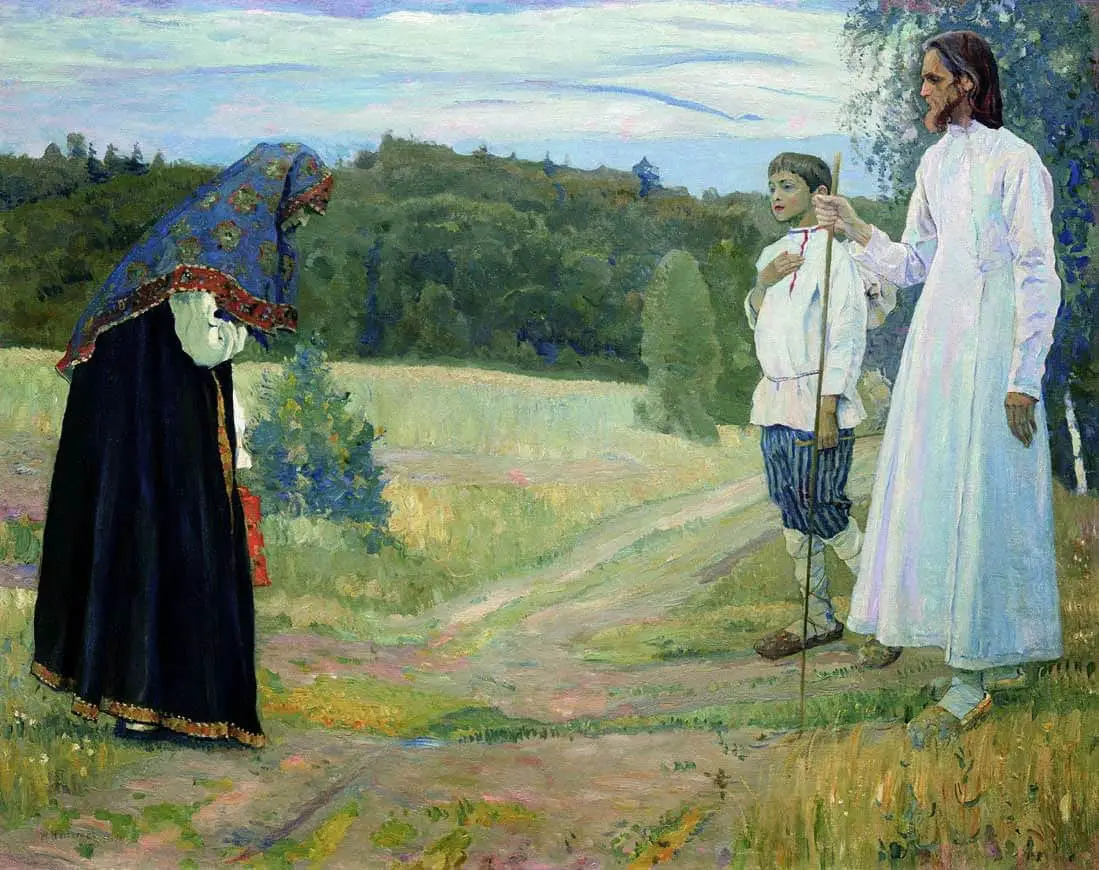Greetings are an important part of Russian culture. These greetings have evolved through the ages, reflecting first pagan worldviews and then Christian. Modern Russian greetings are rooted deep in a tradition of showing respect, building community, and often offering blessings of health. Let’s take a look at how greetings have changed in Russian over time.
Greetings in Russian Culture
When seeing someone for the first time that day, it is imperative in Russian culture to acknowledge and greet them. Not doing so считается оскорблением (is considered an insult). This has been the case in most Slavic cultures for millenia.
Today, people arriving to work, especially men, will often take the time to приветствуют каждого индивидуально и по имени (greet everyone individually and by name). Students arriving to a classroom должны приветствовать учителя по имени и отчеству (should greet the teacher by name and patronymic) and отметить остальных членов группы (acknowledge the rest of the group) with at least a general greeting and/or a nod.
Russian greetings have historically been designed выразить уважение и благословение тому, кого приветствуют (to express respect and blessings for the person greeted). In fact, according to some, the root of the word “Slav” comes not from “slave,” as often purported due the number of Slavs captured and sold into slavery to both the Eastern and Western worlds, but instead from the verb “славить” (slavit’), which means “to praise” or “to bless.” The theory postulates that the term was applied because of the constant florid greetings Slavs exchanged with anyone they met.
Pre-Christian Greetings: Verbal
Some greetings used in Pre-Christian Russia are no longer used in everyday speech – but are still known in literary usage.

One such greeting is “Мир вашему дому!” (Peace unto your house). In both English and Russian, “house” once означал как место проживания, так и всю семью (referred to both where one lived and to one’s extended family). In pre-Christian Russia, this greeting also likely addressed the домовой (house spirit) who controlled one’s fortunes and the family’s health. Thus, “Мир вашему дому!” is a meaningful and respectful greeting that not only addresses the greeted, but all sends blessings to those that the greeted loves and depends upon.
A similar greeting is “Слава Роду твоему!” (Glory to your family!) The word “род,” from which we now get the words “родители” (parents) and “родина” (homeland), would have meant not just one’s extended parents, but also ancestors and future lineage. It also directly invokes the name of Род, the powerful patriarch of the Slavic pantheon.
The most interesting ancient greeting is undoubtedly “Гой еси!” (Goi esi!). Today it is found only in old Russian folk tales and literature, but it was once common.
“Гой” refers to both the act of living and the power of life. In some Slavic myths, it is told that the sound of this powerful word rang out when тьма раскололась и образовался мир (darkness split and the world was formed). In pagan times, гой was a force not exclusive to humans, but also extended to animals, plants, rivers, meadows, forests, fields, and throughout the natural world.
This can be seen in Russian folklore, where heroes are helped or hindered by elements of the natural world or by spirits representing them. We can also see this reflected in poetic literature. A line from A. K. Tolstoy exclaims “Гой, ты, родина моя, гой ты, бор дремучий!” (“Goy, you are, my homeland, goy you are, dense forest!”) and A. S. Pushkin writes “Ой ты гой еси, Волга, мать родная!” (“Oh, you are goy, Volga, my own mother!”).
“Гой” was usually collocated with the word еси (esi), a verb obviously close to the modern Russian “есть” and with the same meaning: “to be” or “to exist.”
When used as a greeting, “Ты гой еси!,” literally meant that the person embodied goy; it acknowledged the other person as a fellow living thing, but also as something connected to the greater life force they shared with the world around them. A connection to this force was needed for health and strength and thus this can also be seen as a blessing for health to the greeted.
“Гой” has been preserved as a root in modern Russian in the word “изгой” (outcast/castaway/exile). “Из” is a prefix indicating removal. Thus, изгой is a person separated from life. The word originally meant someone banished from their community or who had lost their livelihood.
Interestingly, in Jewish languages, “goy” is also used – but with the exact opposite meaning of гой. It describes something that is removed and separate from one’s self and culture (and often used pejoratively). The two words likely evolved from the same Greek root to different effect.
Pre-Christian Greetings: Non-Verbal
Russian culture has always included a wide range of non-verbal greetings. These are usually accompanied by verbal exclamations and include рукопожатия (handshakes), объятия (hugs), поцелуи (kisses), помахивание рукой (waves) and другие жесты (other gestures).
Russian culture also once had a complex system of bowing. There were several различных видов поклонов (different types of bows). Which bow one was expected to give зависело от социального статуса приветствующего и приветствуемого (depended on the social status of the greeter and greeted).
The lightest bow was simply положить руку на сердце (to place one’s hand over one’s heart) and слегка наклонить голову (move one’s head down slightly). This bow could be given to to strangers or the elderly to выразить уважение (show respect) or to simply подчеркнуть искренность (emphasize one’s sincerity) when speaking. This gesture is still used in Russia and is very common in Muslim cultures as well.
A more serious bow required наклонить голову чуть ниже (moving one’s head down slightly deeper) and standing со сцепленными перед собой руками (with hands clasped in front). This was used when addressing someone of higher authority and often при обращении с просьбами или прощением (when making requests or asking forgiveness). This gesture is also still used.
The most serious bow involved прикладывание лба к земле (placing the forehead on the ground) or, at very least, by bending at the waist so that the body was bent by at least 90 degrees. This was reserved to show extreme respect for someone of very high social status or выразить крайнюю благодарность (to show extreme gratitude). Today, it is not uncommon to hear someone say “низкий вам поклон” (“I bow deeply to you”) or “челом бью” (literally: “I hit my forehead”) in order to express deep gratitude. Both of these phrases were once often uttered with an actual low bow, but today this is likely to be limited to the hand-over-heart bow mentioned above.
Christian Greetings
Christianity greatly influenced Russian culture, including in how Russians greeted one another.
One common greeting was “Христос посреди нас!” (Christ is among us!). Like “Гой еси,” this greeting serves primarily to establish a single community between the greeter and greeted, although it does so through Christianity rather than the all-encompassing pagan life force.
While pagan greetings also sometimes had expected responses, the call-and-response heavy nature of Orthodox services seem to have made it more common in everyday life as well. The Christian greeting “Христос посреди нас!” expected the response of “Есть и будет!” (“He is and will be!”)
Another common Christian greeting in Russia was “Радуйся!,” (“Rejoice!”) This word opens the Canticle of Mary, a religious hymn. A common response was “Господь с тобою!,” (“God is with you!”), one of the next lines in the hymn.
Some greetings in Russian have always been situational. One greeting used when coming upon a person working was “Бог в помощь!” (“God be your help!”). The usual response to this was “Во славу Божию!” (For the glory of God!) or sometimes “Слава Богу!” (To God the glory!).
Modern Greetings; Ancient Roots
Today, the two most common greetings in Russian are “здравствуйте” and “привет.” Both of these are, in fact, very old greetings and, as can be guessed from the discussion so far, are designed to show the right amount of respect, build community, and express well-wishes to the greeted.
The word “здравствуйте” is used to address strangers and those in positions of respect. It has another form “здравствуй” that can be used in slightly less formal situations, when one knows a person fairly well but is not yet close to them or when someone older addresses someone younger with respect.

Both of these greetings are imperative verb forms of the word “здравие” (health). Thus, they mean, literally, “Be healthy.”
If we look at the etymology of здравие further, we can see even deeper connections to many of the old greetings. The roots “здрав” and “здров” reach back to Proto-Slavic and are shared with ancient Hindu and Greek. There are two parts within the root: “s-” which indicated “good” and “-dorvo,” which refers to a tree and is related to the modern word “дерево,” which still means “tree” in modern Russian. For many ancient cultures, including the ancient Slavs, trees were symbols of strength and well-being of oneself but also one’s ancestry and lineage. Thus, the greeting contains many of the elements of the ancient greetings covered above.
The first recorded use of the word “здравствуйте” was in a manuscript dated 1057 AD. The full greeting recorded was: “Здравствуйте же многие лета” (Be well for many years).
Interestingly, in its original usage, “здравствуйте” could only be used between equal, free people and was not used to greet superiors. Serfs and bondsmen, for instance, would typically greet their superiors with a low bow and by uttering “бью челом” (I hit my forehead).
“Привет” in its current usage is a modern word with origins in the 19th century. It consists of two parts: “при“+”вет.” The former is a prefix signifying closeness or beginning. The latter refers to communication. The same root is used in words such as “совет” (advice), “ответ” (response, answer), and “весть” (news, message). This word is today used between those who know each other well and represents not only a warm greeting, but also an invitation to further communication; it is the start of a conversation, and not just an interjection.
Modern Russian also still has situational greetings. The most common of these today is “приятного аппетита,” (literally “pleasant appetite”) which one is expected to say anytime one comes upon another person who is eating. The greeting encourages the other person to enjoy their meal and eat well. The expected response is usually simply “спасибо” (thank you), but, если есть чем поделиться (if there is enough to share), the person eating might invite his greeter to присоединяйтесь к ним (join them) in sharing the food.
“Приятного аппетита” came into Russian from the French “bon appetit” in the 18th century. However, it only took the place of older situational greetings which included “кушайте на здоровье” (“eat to your health”) and “хлеб да соль.” The last phrase, which translates as simply “bread and salt,” named what were considered to be the two pillars of life in ancient times. Thus, all of these greetings are blessings of health upon the greeted.
“Приятного аппетита” is another greeting that will mark you as вежливым (polite) if you use it and грубым (rude) if you don’t.
Russian Greetings in Historical Context
Russian greetings are far too many to count or list here. They are an integral and even defining part of the culture. They have evolved to reflect pagan and then Christian worldviews, but have always been focused on building community, showing respect, and offering blessings of health.
You’ll Also Love

Russian MiniLesson: Russian Grammar Terms and Related Russian Vocabulary
Russia’s is different from what is typically found in the USA. While occur in both Russia and America, it is much more common for Russian teachers to be and perhaps . Wrong Example: Right Example: may make seemingly sarcastic remarks regarding a student’s performance, for example. Writer Anton Chekhov described this in his 19th century […]

Russian Vocabulary about Russian Literature
Russian literature uses the same forms and structures as well as literary and poetic devices as other great Western literature. One can find in Russian literature fiction and nonfiction, novels, short stories, and poems, all containing narrative structure, metaphor, simile, metonymy, and other common devices. Thus, Russian literature can be analyzed with many of the […]

Russian MiniLessons: Thankfulness
The following bilingual Russian MiniLesson is meant to build your vocabulary by providing Russian phrases within English text. Hover over the bold Russian to reveal its English translation. This topic is doubly pertinent this month, as has just passed, but also because many are likely to be affected by the new law on NGOs. The […]

Russian MiniLesson: Funeral Lunches and Related Russian Vocabulary
The following was written by Caroline Barrow, a former SRAS Home and Abroad Scholar now working in Kazakhstan. Through an acquaintance there, she was invited to a traditional Russian funeral lunch – and shares her experience here. Each culture has its own way of honoring those who have left this world. Russians do this in […]

Durak, Pyanitsa, Loto: Games in Russian-Speaking Cultures
Games such as durak, pyanitsa, and loto are known to nearly everyone in Russian-speaking cultures. While these all have close analogues in many foreign cultures, participating in the games as a foreigner can be difficult as many have highly specific jargon associated with them. The language resource below will introduce you to these games, how […]






